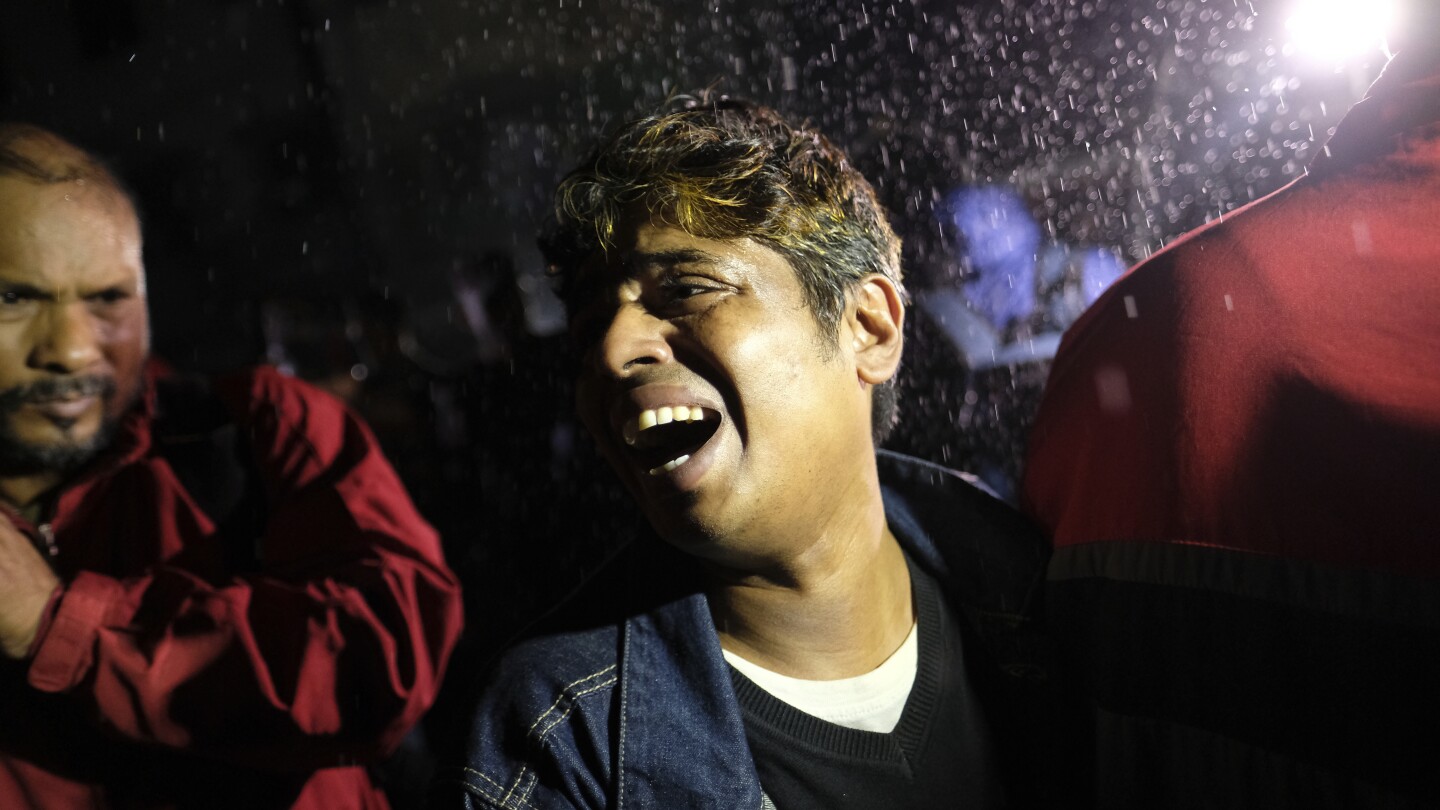DHAKA, Bangladesh (AP) — An apparent arson fire on a train in Bangladesh’s capital killed four people late Friday and added to the country’s extreme tension ahead of Sunday’s parliamentary elections that the opposition is seeking to boycott and disrupt with a general strike.
The fire rapidly raced through four coaches in the passenger train in what one police official called an attack aimed at scaring people ahead of the voting, though authorities did not immediately name any individuals or groups as suspects.
Bangladesh frequently has violence surrounding elections, and Sunday’s voting comes amid an increasingly polarized political culture led by two powerful women — current Prime Minister Sheikh Hasina and former premier Khaleda Zia, an opposition leader currently under house arrest.
Zia’s Bangladesh Nationalist Party and other opposition groups are boycotting. saying elections wouldn’t be free or fair under Hasina. They had demanded she step aside and let a neutral caretaker government administer the polling, but her government insisted there was no provision in the constitution for such a move.
The fire on the train broke out as it was moving toward Dhaka’s main railway station about 9 p.m., Rakibul Hasan, a duty officer of the Fire Service and Civil Defense, told The Associated Press by phone. At least four bodies were recovered from inside the train, police told reporters at the scene.
Mahid Uddin, an additional police commissioner with the Dhaka Metropolitan Police, said the fire was “clearly an act of sabotage” aimed at scaring people ahead of the election. He did not name any political party or groups as suspects, but said police would seek those responsible.
Seven firefighting units were sent to the scene to douse the blaze, Hasan said.
Campaigning for the elections officially came to an end Friday morning. The Election Commission announced polling would be held in 299 constituencies out of 300 across the country on Sunday. The election in one constituency was postponed after an independent candidate died of natural causes.
Ruhul Kabir Rizvi, a senior joint secretary general in Zia’s party, has urged people not to vote on Sunday and called for a 48-hour general strike beginning 6 a.m. on Saturday and ending 6 a.m. on Monday.
On Friday morning, Rizvi led more than 100 opposition leaders and activists who were holding sticks and chanting anti-government slogans as they marched in the capital’s Karwan Bazar area.
“People will not accept this illegal election. People will not accept this election of looters,” Rizvi said during the march.
Hasina addressed the nation in a last televised campaign speech Thursday night, urging people to head to ballot stations.
“If I have made any mistakes along the way, I ask your forgiveness. If I can form the government again, I will get a chance to correct the mistakes. Give me an opportunity to serve you,” she said.
Earlier on Thursday, Hasina, addressing a huge campaign rally at Fatullah near Dhaka, urged all to maintain peace across the country.
At least three people have been killed in violence attributed to political clashes since the campaign officially began Dec. 18. Bangladesh has a history of violence during elections and this year’s election is drawing international attention.
The U.N. Secretary-General’s Associate Spokeswoman Florencia Soto Nino in New York said Wednesday: “We’re watching the process closely, and we hope that all elections happen in a transparent and organized manner.”
Critics have accused Hasina of systemically suffocating the opposition by implementing repressive security measures. Zia’s party claimed that more than 20,000 opposition supporters have been arrested. The government said those figures were inflated and denied arrests were made due to political leanings, but rather for criminal charges such as arson and vandalism.
Nearly 1.6 million people — half of them security personnel — will oversee the election, with 119.1 million registered voters eligible to vote in more than 42,000 polling stations, the commission said. Troops have also been deployed across the country to assist when needed under the supervision of magistrates, a common practice in Bangladesh during general elections.
The Election Commission said Thursday that about 300 foreign observers, more than 70 of them are foreign journalists have been authorized to monitor and cover the election.

